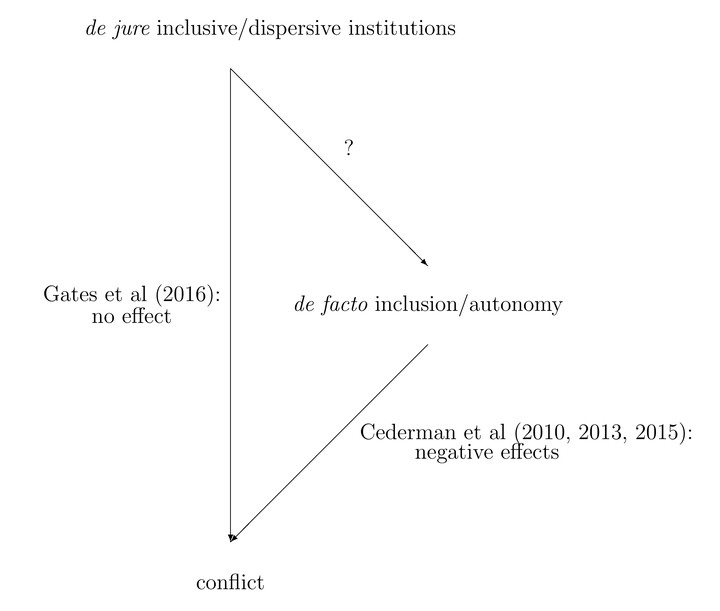 Direct and indirect effects of power-sharing institutions on armed conflict.
Direct and indirect effects of power-sharing institutions on armed conflict.
Abstract
Grievances that derive from the unequal treatment of ethnic groups are a key motivation for civil war. Ethnic power-sharing should therefore reduce the risk of internal conflict. Yet conflict researchers disagree on whether formal power-sharing institutions effectively prevent large-scale violence.We can improve our understanding of the effect of power-sharing institutions by analyzing the mechanisms under which they operate. To this effect, we compare the direct effect of formal power-sharing institutions on peace with their indirect effect through power-sharing behavior. Combining data on inclusive and territorially dispersive institutions with information on power-sharing behavior, we empirically assess this relationship on a global scale. Our causal mediation analysis reveals that formal power-sharing institutions affect the probability of ethnic conflict onset mostly through power-sharing behavior that these institutions induce.